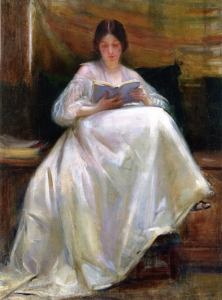A woman of worth
A woman of worth
In November 2016, the United Nations nominated a fictional superhero, Wonder woman, to be an honorary ambassador for the empowerment of women.
The decision was met with amusement but also condemnation due to the fact that the nominee was fictional.
Appealing to the younger generation, the choice does have logic, as some United Nations’ representatives argued.
Yet, in light of the storm it caused, one should stop and asked whether or not this “appointment” had any value beyond its “fifteen minutes of glory”.
Truth be told: if it were not for the multi budget blockbuster that is due to come out in 2017, starring the said Wonder woman, it is probable that there would have been no ceremony and no “appointment”. Pure promotional and marketing considerations chose this heroine, celebrating 75 years of her inception.
The argument is justifiable. It is interesting to review the two main reasons behind the opposition of the choice.
The first is the exaggerated sex symbol.
This point of view is understandable: the appearance of the fictional super heroine makes it extremely difficult to identify with her and the sexual emphasis is not conducive to being a spokeswoman for the UN.
On the other hand, being blind to the adoration that her attributes arouse would be a mistake. After all, what is the purpose of such an honorary ambassador? To gain the attention of the masses in order to promote, publicize and speak out on important matters, and who is better to do this than she who has already gained the attention of such masses?
Other criteria are surely required to support the choice, but the basic idea – popularity and its power to speak to willing ears – is the winning card.
For this reason Wonder woman could be the perfect candidate.
However, this is not the main dispute.
The second reason for those who opposed, clamed in their protest, that the nomination was disappointing because it testified to the UN’s failure to find a flesh and blood woman who would represent and defend the rights of all women in matters of equal rights and personal empowerment, and who would be able to speak on any stage.
Wonder woman IS a fictional character, but cannot a fictional character serve as a symbol, role model and inspiration?
Is the idea of fiction to inspire? And if so, why the protest?
Wonder woman was chosen for representing values of justice, peace and equality, but is it possible to obtain these values by violence as she does? If one is choosing a fictional character, would it not be better to choose a woman who displays high resistance against the harshness of life – Cinderella, Snow-white, Gretel (of Hansel and Gretel) or Thumbelina?
And what about Pipi-long-stocking or Heidi?
Would this be more, or less absurd, than the appointment of Wonder woman?
What about Jane Eyre, or Jo from Little Women?
The problem is not with the choice of a fictional character but with a fictional character that oversteps human boundaries.
Nowadays the focus of a story, fictional or otherwise, is about overcoming great obstacles. The greater the obstacle the deeper our interest – not because we have become colder and indifferent, but because in the real world there are no fairies who arrange or witches who destroy the narrative. Therefore, the measure of success depends on those who cope with problems life has thrown their way. If a regular person can overcome such hardship, anyone can. It is not a question of magic or special qualities; it is a matter of determination and perseverance.
Alongside the admiration of celebrities, the rich and the beautiful, there is (still) a more valid evaluation of character. The outward appearance of heroes or heroines does not matter as long as the focus remains on the fight and the justified victory.
Here is precisely the problem: heroes have to win, otherwise they cannot be considered heroes. This hypothesis generates more than one contradiction because when the victory is the most important aspect of the struggle, the way it is reached becomes insignificant, but this is wrong thinking. It is the struggle that gives the victory its powerful meaning.
A great victor is the absolute opposite to the miserable loser, but in the real world there are no great victors as are in books, comics or movies. The new genre that turns Superman into a vulnerable human being does not make him more accessible: he was and remains undefeated. This hero will always win, no matter the cost, and his victory will always be bright, no matter how scarred and hurt when he reaches the finishing line.
When one enjoys such heroes or heroines as entertainment – it is as is.
When such are appointed to be a UN role model – an entirely different matter.
In real life one cannot win constantly, no one is either Superman or Wonder woman.
Fictional heroes can be inspirational as they offer some sort of example just as are human role models, with one major difference: reality.
A writer or film maker can create any world he likes, but it is not real.
Helen Keller, Annie Sullivan, Donna Gracia, Rosa Parks, George Eliot, Harriet Harriet Beecher Stowe, Marie Curie, Dorothy Crowfoot Hodgkin – lived and were true “wonder-women”.
Fictional Wonder woman might be a woman of worth, but she is not real.
Her wars are not real.
Her pains are not real.
As are her victories.
She can be as inspirational as anyone else but she should not be appointed UN honorary ambassador.
It is just a publicity stunt.
After all, someone has to pay the bill for an expensive film production…

